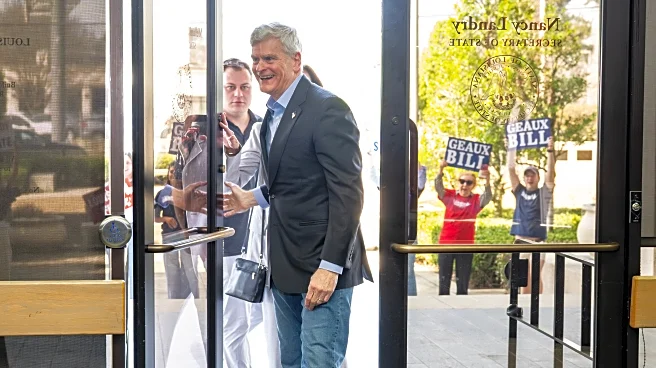What's Happening?
The demolition of the East Wing of the White House is underway as President Donald Trump moves forward with plans to construct a new ballroom. The facade of the East Wing is now barely recognizable, highlighting
the significant changes being made. Trump's approach to the renovation has been marked by a lack of engagement with preservationists and the commission responsible for overseeing federal building projects. This has led to comparisons with past White House renovations, which typically involved more regulatory oversight and public consultation.
Why It's Important?
The ongoing demolition and construction at the White House have broader implications for federal building policies and historical preservation. Trump's decision to proceed without traditional approvals could influence future government projects, potentially reducing oversight and increasing executive latitude. The financial and cultural impact of such a large-scale renovation is significant, with potential repercussions for public trust in government spending and respect for national heritage sites. This project may also affect Trump's legacy, as it represents a substantial alteration to a symbol of American history.
What's Next?
As the demolition continues, there may be increased scrutiny from preservationists and government bodies regarding the legality and appropriateness of the project. Potential legal challenges or demands for regulatory compliance could arise, aiming to halt or modify the construction plans. Public opinion and political discourse are likely to focus on the implications of such a costly and controversial renovation, influencing future policy decisions regarding federal building projects.
Beyond the Headlines
The cultural and ethical dimensions of altering a historic site like the White House are significant. This project raises questions about the balance between modernization and preservation, and the role of personal legacy in presidential decision-making. Long-term, this could influence how future administrations approach renovations, potentially prioritizing personal or political agendas over historical integrity.











